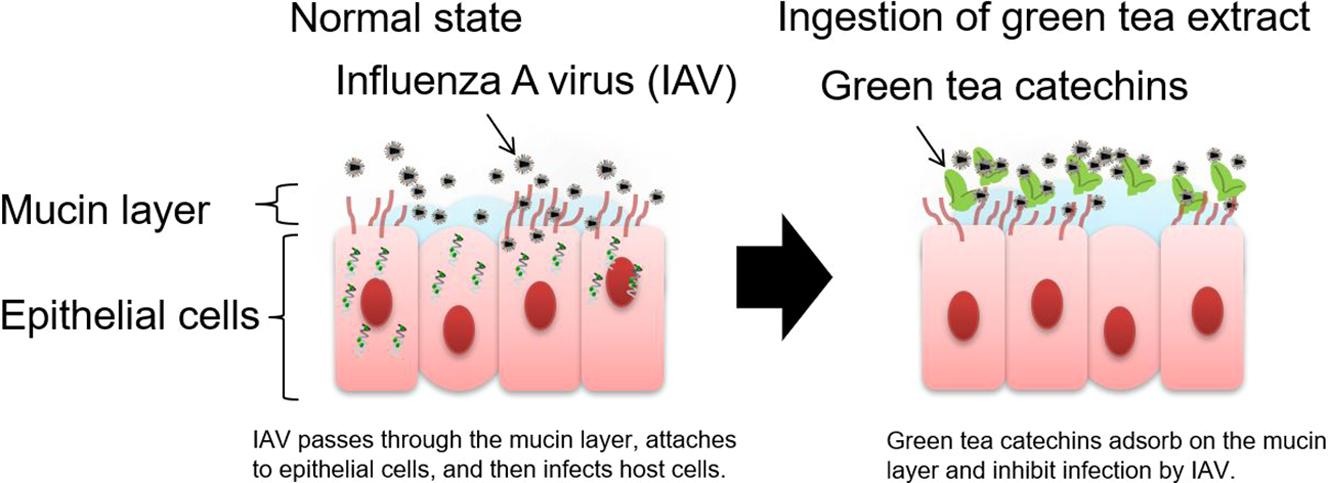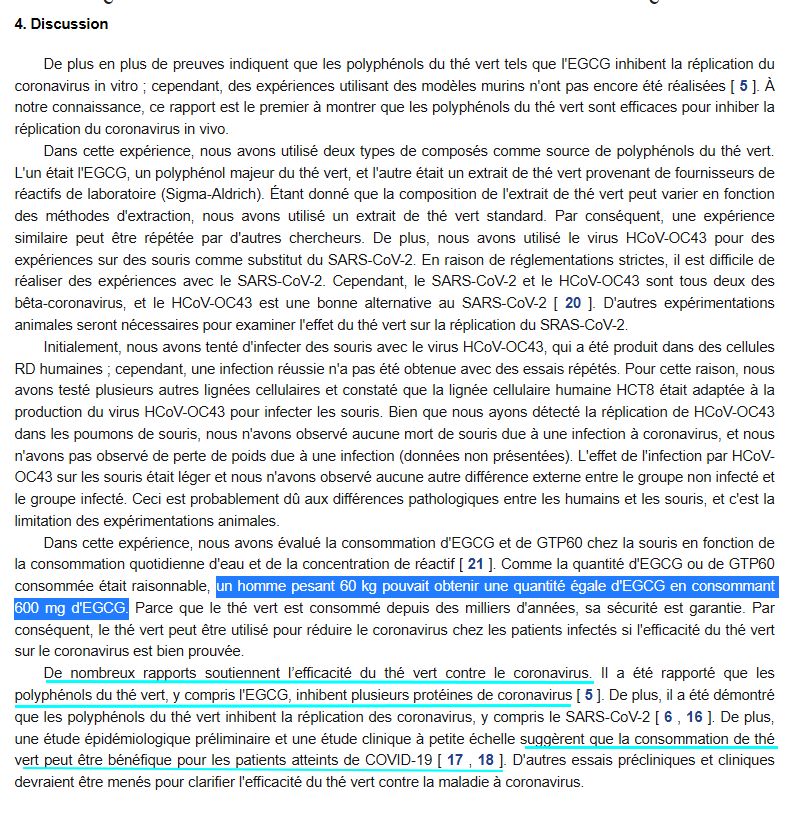Green tea catechins adsorbed on the murine pharyngeal mucosa reduce influenza A virus infection
Shintaro Onishia Journal of Functional Foods Volume 68, May 2020, 103894
Highlights
• Green tea extract containing catechins was orally ingested to mice.
• Green tea catechins were adsorbed on the pharyngeal mucosa in a dose-dependent manner.
• Green tea catechins remained adsorbed on the pharyngeal mucosa for up to 60 min after ingestion of green tea extract.
• Green tea catechins adsorbed on the pharyngeal mucosa reduced influenza A virus infection in mice.
Green tea consumption reduces influenza incidence in human populations. However, where and how green tea exerts its anti-viral activities remain unclear. Here, we examined the adsorption of green tea catechins on the pharyngeal mucosa at 3–60 min after ingestion of green tea extract (GTE) and the role this adsorption plays in preventing influenza A virus (IAV) infection in BALB/c mice. Green tea catechins were adsorbed on the pharyngeal mucosa for up to 60 min after GTE ingestion.
The anti-IAV activity of GTE was dose dependent (p < 0.001). The anti-IAV activity of GTE peaked at 3 min after GTE ingestion and then gradually diminished; this was consistent with the amount of green tea catechins remaining on the pharyngeal mucosa.
These results suggest that adsorption of green tea catechins on the pharyngeal mucosa is important for the anti-IAV activity of GTE.















